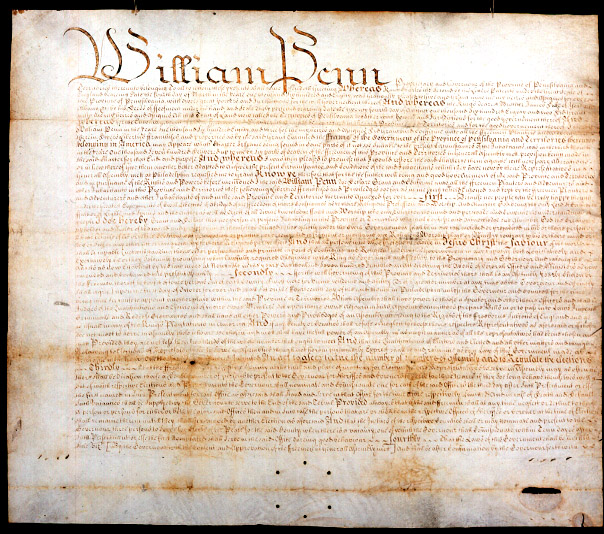Charter
With Charter ( Pl charters, pronunciation [ karta ]; Latin charta, sheet of paper ', borrowed from ancient Greek Chartes ( χάρτης ), possibly with the Egyptian word kheret -aa, writer box ' related ) is defined as the basic for the constitutional and international legal documents.
In diplomacy, the Charter is defined as early medieval document form from the Notitia: The Charter is a dispositive document, which is formulated in the first person and in present tense, while the Notitia is formulated as documentary evidence in the third person and past tense. The Charter was in the early and high Middle Ages, particularly in southern Europe (Italy, Spain, Southern France) in use.
In a figurative sense, the term is also used for statutes or commitments for non-governmental organizations. There are, for example, charters of groups of artists, scientists or professional communities.
Known charters are:
- Carta Caritatis, the resulting in the 12th century constitutional document of the Cistercian Order, the relations of the Cistercian monasteries controlled with one another
- Charter 77
- Charter of Fundamental Rights of the European Union
- Charter of the United Nations in 1945
- Athens Charter ( CIAM ) 1933
- Charter of Cetin degree (1527 )
- Charter of Venice, historic preservation
- European Charter for Researchers
- Magna Carta 1215
- Portuguese Constitutional Charter of 1826
- Charter 08










